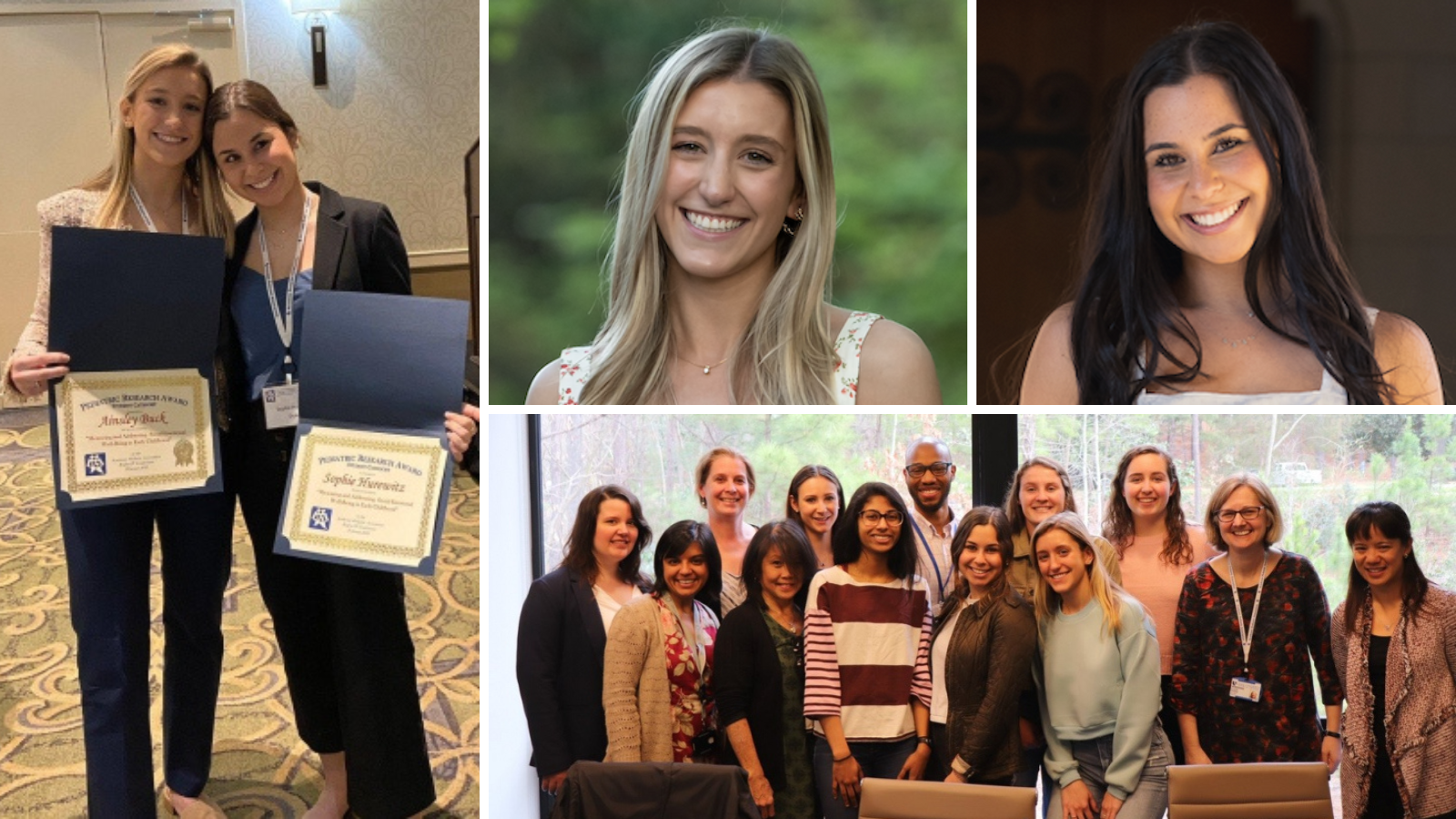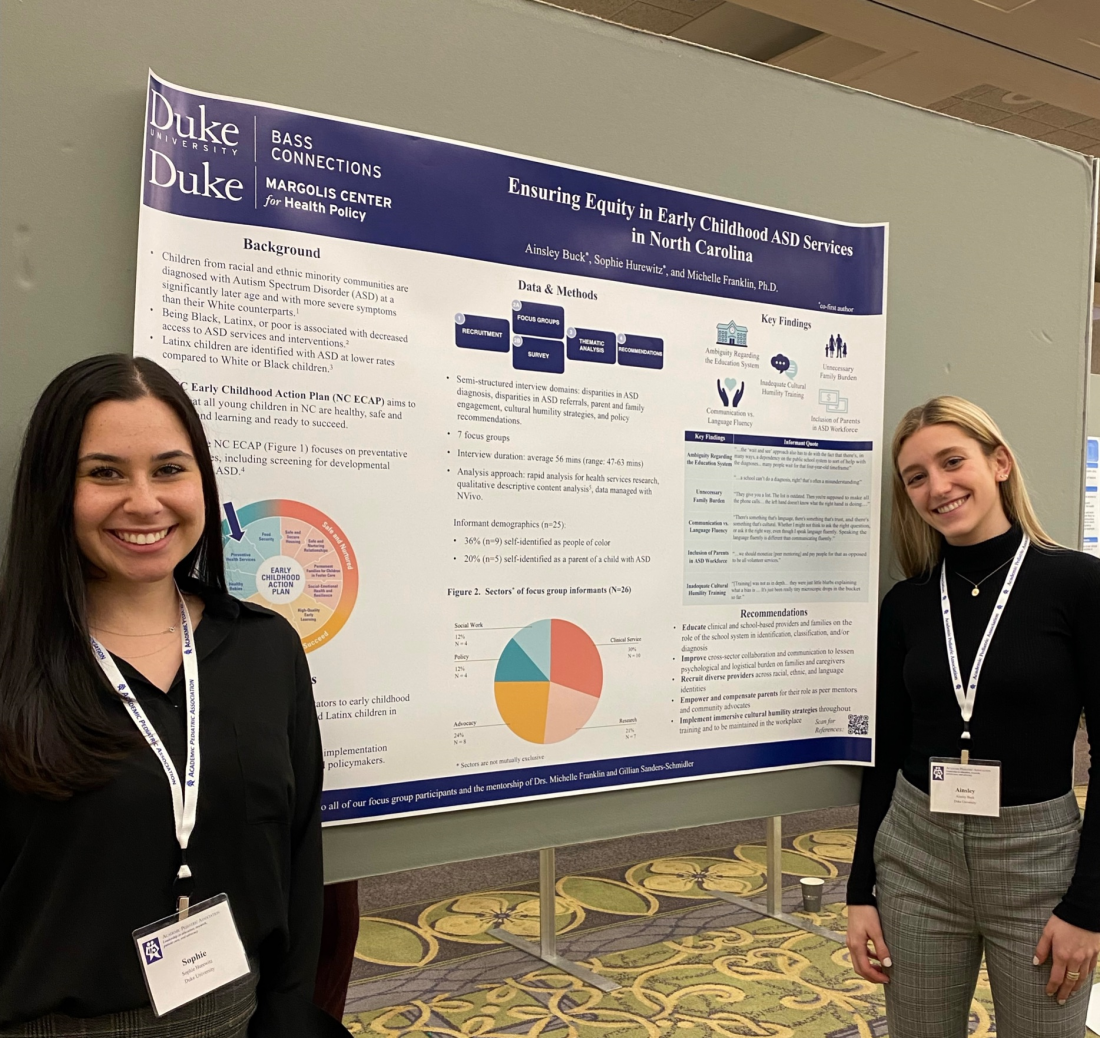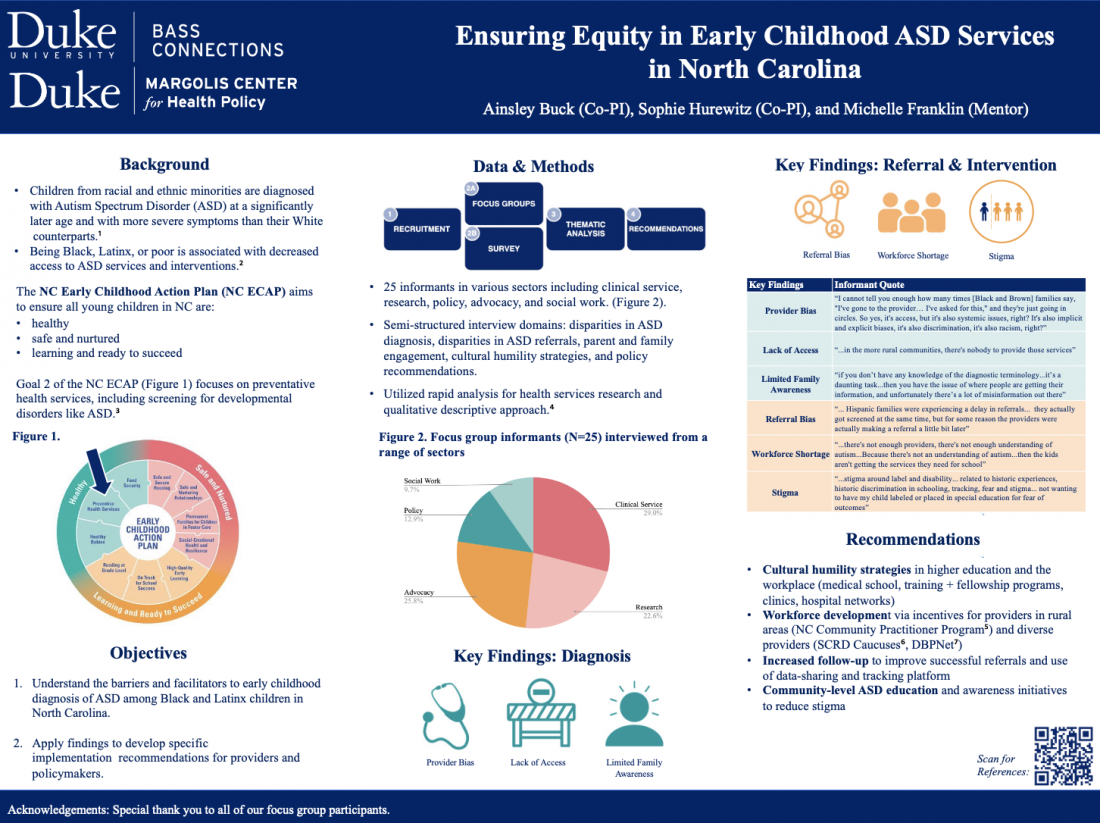Ensuring Equitable Access to Autism Screening for Children in North Carolina
June 22, 2022
In Spring 2021, Ainsley Buck ’22 (Neuroscience) and Sophie Hurewitz ’22 (Neuroscience) received a Bass Connections Student Research Award to examine the barriers and facilitators to the diagnosis of Autism Spectrum Disorder (ASD) among Black and Latinx children in North Carolina. Their project built on the work of the North Carolina Early Childhood Action Plan team, which has been working since 2019 to improve policy implementation around childhood health and wellbeing across the state. Michelle Franklin served as their faculty mentor.

By Ainsley Buck and Sophie Hurewitz
In August of our sophomore year, we attended our first North Carolina Early Childhood Action Plan (NC ECAP) Bass Connections team meeting. While we didn’t know it at the time, these meetings would go on to be not just a weekly occurrence for the duration of our college careers, but a source of newfound knowledge, incredible mentorship, wide-ranging networking opportunities and true friendship.

Each year, the team pursued a different goal of the NC ECAP with the overarching theme of improving the lives and wellbeing of young children and their families. For our independent project, we chose to tackle a goal we hadn’t yet worked on with our team: namely, the implementation of preventative health measures. This goal of the NC ECAP includes screening for developmental delays such as autism spectrum disorder, a condition in which we are both especially interested.
Prior research has shown that Black and Latinx children experience delays in autism diagnoses, referrals to community resources and obtaining intervention services once referred. Such nationwide disparities inspired us to conduct a qualitative analysis of the racial and ethnic inequities in autism service provision in North Carolina with the goal of composing policy recommendations to help the state better identify and support minority children with autism and their families.
We ultimately conducted seven virtual focus groups with 26 informants between May and December 2021. As co-primary investigators of this study, we had the opportunity to lead each step of the research process, including submitting our IRB protocol, creating the interview guide, recruiting informants, conducting the focus groups, analyzing key themes and findings and presenting our work at both national and international conferences.
Academia often emphasizes quantitative data over qualitative data. Our work on this shared research project not only helped us to gain qualitative research experience, but also underscored the importance of including lived experiences and personal narratives in scientific and policy analyses. Providing a platform for these kinds of stories, particularly for traditionally marginalized communities, has allowed us to experience firsthand the impact of qualitative research.
We are both passionate about supporting the developmental and behavioral health of children and have dedicated our undergraduate careers to exploring how to optimize outcomes for children and families through medicine, psychology, research, education, policy and advocacy.

In July, Ainsley will join the Marcus Autism Center at Emory University as a Donald J. Cohen Fellow, where she will be conducting developmental social neuroscience research on early childhood autism using techniques such as eye-tracking and functional magnetic resonance imaging under the guidance of Sarah Schultz, Warren Jones and Ami Klin.
While at Duke, Sophie was the first undergraduate trainee in the North Carolina Leadership Education in Neurodevelopmental and Related Disabilities (NC-LEND) program and wrote a graduation with distinction thesis titled “Ensuring Equity in Early Childhood Autism Service Provision: Supporting Black and Latinx Caregivers During COVID- 19 and Beyond” that was based on this research. In July, Sophie will join the Boston Children’s Hospital Down Syndrome Program and Laboratories of Cognitive Neuroscience where she will work with Carol Wilkinson and Nicole Baumer to conduct research, assist with behavioral assessments and evaluations and support the hospital’s children and their caregivers.
Learn More
- Read more about the 2021-2022 North Carolina Early Childhood Action Plan project team.
- Take a look at the impact of teams in the Education & Human Development theme.
- Explore the projects of the other 2021 Student Research Award grantees.

